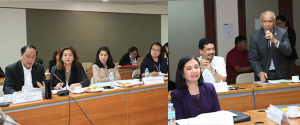 “The services export is continuously growing, thus, total exports are projected to increase in single digit percentage.” Export Development Council (EDC) Executive Director Senen M. Perlada reported during the EDC Meeting last 06 February 2020. Continue reading “Electronics and Services exports forecast bullish performance in 2020”
“The services export is continuously growing, thus, total exports are projected to increase in single digit percentage.” Export Development Council (EDC) Executive Director Senen M. Perlada reported during the EDC Meeting last 06 February 2020. Continue reading “Electronics and Services exports forecast bullish performance in 2020”
DTI and DA forges strong partnership to increase export of agribased products
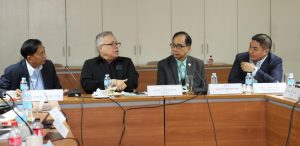 The Department of Trade and Industry (DTI) and Department of Agriculture (DA) show strong support to boost export of agribased products with high global demand. Secretary William Dar of the DA during the Export Development Council (EDC) meeting acknowledged that partnership between DA and DTI is significant in order to supply the demand of export market and to develop other potential crops for export.
The Department of Trade and Industry (DTI) and Department of Agriculture (DA) show strong support to boost export of agribased products with high global demand. Secretary William Dar of the DA during the Export Development Council (EDC) meeting acknowledged that partnership between DA and DTI is significant in order to supply the demand of export market and to develop other potential crops for export.
EDC Executive Director Senen Perlada reported that DTI- Export Marketing Bureau (EMB) has identified four (4) agribased products that have high global demand namely calamansi, ube, pili and mango. He suggested to Secretary Dar that the propagation of these products be included in the DA’s programs. Mr. Ferdie Marañon, EDC representative from Mindanao also raised during the said meeting that there is a recurring problem with the production of cardava (saba) in their region citing that small farmers of cavendish have limited knowledge in growing this variety of banana.
In response, Secretary Dar emphasized that the DA is assisting small farmers by their provision of seedlings and conduct of trainings in growing and production of “saba”. He added that Php50Million was earmarked for the seedlings. Moreover, Agricultural Competitiveness Enhancement Fund (ACEF) is available to finance projects and activities that will help enhance the competitiveness of the agriculture sector. This fund is specifically designed for MSMEs for their capital outlay expenditure and other similar expenses. – PKC
New route for Mindanao Exporters Promoted
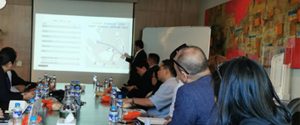 Exporters from Mindanao are encouraged to explore the Davao-Manado route for transporting their goods and products, specifically food products (both fresh and processed) for a more cost-effective and shorter route (from 5 weeks to 13 days). This was presented during a meeting hosted by Philippine Ambassador to Indonesia, Amb. Leechiong T. Wee, as both countries – the Philippines and Indonesia are also trying to explore ways to resume the Davao-GenSan-Bitung route with a Manila-based shipping company.
Exporters from Mindanao are encouraged to explore the Davao-Manado route for transporting their goods and products, specifically food products (both fresh and processed) for a more cost-effective and shorter route (from 5 weeks to 13 days). This was presented during a meeting hosted by Philippine Ambassador to Indonesia, Amb. Leechiong T. Wee, as both countries – the Philippines and Indonesia are also trying to explore ways to resume the Davao-GenSan-Bitung route with a Manila-based shipping company.
The new route is being used and touted as an express line for direct to market shipping route by the Reefer Express Line, Inc., a new player that plans to begin operating the new route within the first half of this year. But operations will commence depending on the negotiations between the shipping company and exporters from both countries.
The shipping company also revealed its plan to serve the new route with additional calls on other ports not only in Indonesia but also in Malaysia and Brunei en route to Singapore. However, the company said that they have yet to discuss the final details with other shippers from the Philippines, Indonesia and other players from Malaysia.
Moreover, the new route was considered a priority of the current administration and the Indonesian government, citing that Manado is the main gateway of Indonesia to the Philippines. Hence, the call for exporters to explore the new route and the services of Reefer Express Line, Inc. – GTM
Digital Design: innovative marketing strategies for Exporters
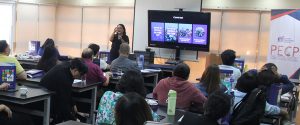 Exporters were encouraged by Canva Philippines to use the Canva app for graphic marketing design. Resource speakers from Canva Philippines lectured on graphic design basics and application of its design principles on how to strengthen brand style and social media presence. Canva is a free application useful to exporters in developing innovative marketing strategies to better connect with their customers locally and in the global market.
Exporters were encouraged by Canva Philippines to use the Canva app for graphic marketing design. Resource speakers from Canva Philippines lectured on graphic design basics and application of its design principles on how to strengthen brand style and social media presence. Canva is a free application useful to exporters in developing innovative marketing strategies to better connect with their customers locally and in the global market.
Said strategies were discussed during the recent information session on Philippine Export Competitiveness Program (PECP) held last 30 January 2020 organized by the Export Marketing Bureau (EMB) of the Department of Trade and Industry (DTI). PECP is a regular monthly forum organized by EMB to boost the competitiveness stance of domestic manufacturers and exports through seminars, information sessions, and activities that give them insights on productivity, innovation, and updates on export trends.
For further inquiries, you may contact Canva Philippines through email at tin@canva.com or thru mobile no. +63 9453.228296. For more updates on PECP seminars, training and info-session you may contact email thru exponet@dti.gov.ph or at telephone no. (02) 8465.3300 local 107.-MGL
Exporters to benefit from Tradeline Philippines
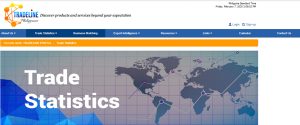 Tradeline Philippines is a platform beneficial to exporters for it is an integrated export information system that provides regular trade statistics reports, market and product information, supplier and buyer databases, online business matching with foreign buyers and other trade-related information through the web. Exporters are encouraged to register and update company profile thru http://businessmatching.dti.gov.ph.
Tradeline Philippines is a platform beneficial to exporters for it is an integrated export information system that provides regular trade statistics reports, market and product information, supplier and buyer databases, online business matching with foreign buyers and other trade-related information through the web. Exporters are encouraged to register and update company profile thru http://businessmatching.dti.gov.ph.
Tradeline Philippines is the business intelligence platform of the Department of Trade and Industry-Export Marketing Bureau (DTI-EMB) that aims to provide timely and relevant information and assistance to existing and potential exporters to enhance their capabilities and competitiveness as suppliers of quality goods and services to global markets.
For further inquiries please call EMB-Knowledge Process Division through telephone no. 465.3300 local 105 or email at embkpd@dti.gov.ph. –MGL
Digital transformation highlighted in this year’s National Export Congress
 “Driving Exports Through Digital Transformation” was this years’ theme for the annual National Export Congress which was successfully conducted last 06 December 2019 at the Philippine International Convention Center. The theme focused on technology and innovation initiatives to grow exports and promote collaboration between and among the government, industry and academe as a critical element in improving the country’s economy.
“Driving Exports Through Digital Transformation” was this years’ theme for the annual National Export Congress which was successfully conducted last 06 December 2019 at the Philippine International Convention Center. The theme focused on technology and innovation initiatives to grow exports and promote collaboration between and among the government, industry and academe as a critical element in improving the country’s economy.
The Congress tackled timely and relevant issues on what policies can the government develop to cope up with the demand and rigors of converting the country’s international trade agenda into the digital era. It also tackled how businesses, especially the export sector, could equip themselves and properly respond to the fast-changing technological revolution that is dominating and shaping today’s global trade.
DTI Secretary Ramon M. Lopez, in his keynote speech, revealed that the department has called for a P25 billion to P30 billion budget for the export sector over a three-year period as government moves to provide all-out support for the export sector through incentives under the Strategic Investment Priorities Plan (SIPP), implementation of standards and safeguard measures to strengthen domestic manufacturing, reduced trade barriers, and fund mobilization, including soft loans. The Trade Chief added that such a move will not only bolster the country’s economic growth but will address our trade deficit, generate more jobs and employment and income opportunities for Filipinos.
On the other hand, PHILEXPORT President, Mr. Sergio R. Ortiz-Luis, Jr, emphasized the need for the country’s MSMEs to level up their operations and improve their business processes and efficiencies as the economy moves towards emerging opportunities in the age of digitalization.
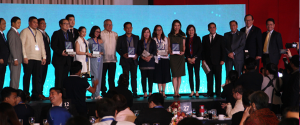 Moreover, the NEC also gave due recognition and acknowledgment to twenty-one (21) Top Filipino exporters of 2018. They were given recognition based on their track record, excellence and innovation in the delivery of goods and services. Their fortitude and determination to achieve success in producing globally competitive products has greatly contributed to the country’s export revenue.
Moreover, the NEC also gave due recognition and acknowledgment to twenty-one (21) Top Filipino exporters of 2018. They were given recognition based on their track record, excellence and innovation in the delivery of goods and services. Their fortitude and determination to achieve success in producing globally competitive products has greatly contributed to the country’s export revenue.
The awards were presented and handed out by DTI Secretary Ramon Lopez, PHILEXPORT President Sergio Ortiz-Luis, Undersecretary Abdulgani Macatoman, and DTI-EMB Director, Senen M. Perlada.
The NEC is the culminating event of the National Exporters Week (NEW). Every first week of December is the annual celebration of the NEW per Presidential Proclamation No. 9931, s. 1996 and House Resolution No. 33. It highlights the government and private sectors’ commitment to continuously work together to sustain export promotion and development.-GTM
Philippines joins ASEAN exchange of electronic Certificate of Origin
 The Philippines can now exchange electronic Certificate of Origin (e-CO) with Indonesia and Malaysia as it joins ASEAN Single Window (ASW) Live Operation on 30 December 2019.
The Philippines can now exchange electronic Certificate of Origin (e-CO) with Indonesia and Malaysia as it joins ASEAN Single Window (ASW) Live Operation on 30 December 2019.
The e-CO refers to the ASEAN Trade in Goods Agreement (ATIGA) Form D, an international trade document attesting that goods in a particular export shipment were wholly obtained, produced, manufactured, or processed in a particular country.
As confirmed in an email by the ASEAN Secretariat, “the remaining AMS (ASEAN Member States) will need more time to complete domestic procedures and resolving remaining technical issues”.
Consequently, the Bureau of Customs, through its Export Coordination Division (ECD) and Export Divisions in selected ports shall now issue e-CO using the TradeNet platform pursuant to Customs Memorandum Order (CMO) 15-2019.
The Order governs the application, submission, and processing of e-CO and aims “to facilitate the transmission of e-CO for export products and the receipt of e-CO for imported products.” Meanwhile, the TradeNet covers the functions of the Philippine National Single Window (PNSW). It serves as an automated permit, licensing, and clearance system integrated into one platform for 66 Trade Regulatory Government Agencies (TRGAs) and 10 economic zones. ARB
DOTr initiatives show strong support to the PEDP
In support to Strategy 1 of the Philippine Export Development Plan (PEDP) 2018-2022 which is to improve the overall climate for export development, the Department of Transportation (DOTr) contributed through its submission of the Agency’s Policies, Action Plans and Programs (PAPs) to raise the productivity and competitiveness of Philippine Enterprises.
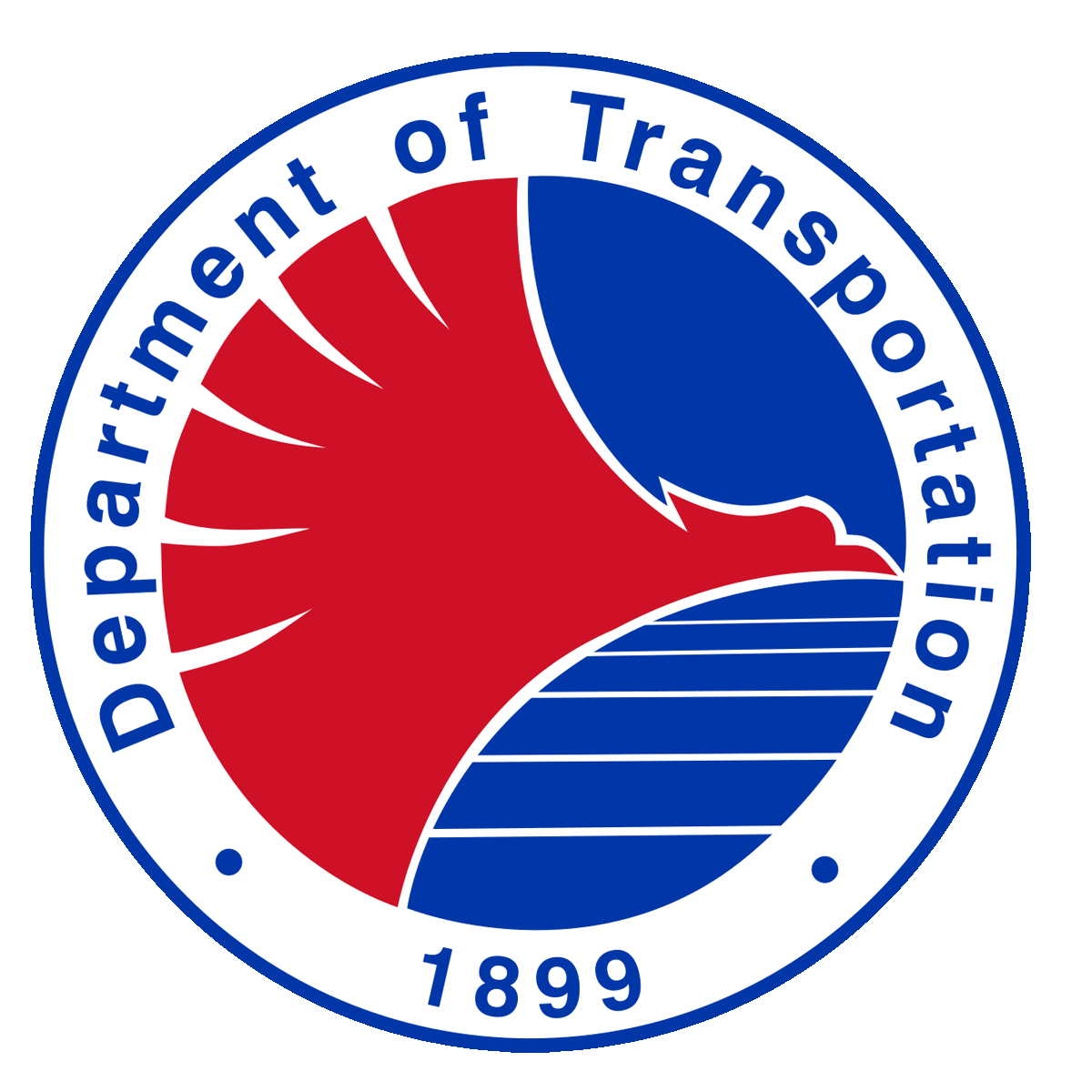 The DOTr PAPs focus on the development of infrastructures such as Railways, Maritime, Aviation, Road transport, and Toll roads. DOTr reported that from 2016 to 2019, it has reached a total of 119 completed airport projects; of which 70 projects are directly under the DOTr. Some completed projects include Marinduque, Sangley and Camiguin Airport.
The DOTr PAPs focus on the development of infrastructures such as Railways, Maritime, Aviation, Road transport, and Toll roads. DOTr reported that from 2016 to 2019, it has reached a total of 119 completed airport projects; of which 70 projects are directly under the DOTr. Some completed projects include Marinduque, Sangley and Camiguin Airport.
Moreover, DOTr also reported numerous railway infrastructure projects namely the North-South Commuter Railway System, Metro Manila Subway, MRT3 Rehabilitation, Mindanao Railway, PNR South Long Haul (Manila-Batangas-Sorsogon), LRT-1 Cavite Extension and Subic-Clark Railway. It is noted that some of the said projects are now ongoing rehabilitation specifically that of the MRT-3 which includes the overhaul of the rail line’s 72 light rail vehicles, replacement of mainline tracks, rehabilitation of power and overhead catenary systems, and other improvements.
All these initiatives are geared to make the movement of goods and people not only easier and faster but more so, cost-effective and efficient.
For other programs and further details, visit the DOTr website at http://dotr.gov.ph/- PKC
Food exporters can now secure Export/Commodity Clearance in one day
October 2019, food exporters can now secure Food Export Certificate and Commodity Clearance in one day following the Food and Drug Administration (FDA) move to streamline its process and revision of application form. The old process requires exporters to wait 2-3 days to secure Export/Commodity Clearance.
In an advisory presented during the FDA Forum with Food Exporters on 22 October 2019, it noted that “In consonance with the provision of Republic Act No. 11032 otherwise known as the “Ease of Doing Business and Efficient Government Service Delivery Act of 2018”, the Common Services Laboratory (CSL) revised the current application forms template and process flow in the application of Food Export Certificate and Food Commodity Clearance”. Commodity Clearance is used to prove that the export product is freely sold in the country and safe for human consumption.
To apply for Export/Commodity Clearance, applicants shall submit two (2) copies of accomplished Application Form, photocopies of License to Operate and Certificate of Product Registration, Packing List or Sales Invoice and flash drive (will be returned to applicant) containing the filled templates of the draft Certificates and database.
Revised application form and process flow can be downloaded in the FDA website.
Exporters shall proceed to FDA-Common Services Laboratory office at Starmall Alabang. However, for applicants outside Metro Manila, regional/online application is targeted to be implemented by FDA in 2020.
Battling Congestion with Intelligent Transportation System
 During his Government Address on The Roads and Traffic Expo, Chairman Danilo Lim of Metro Manila Development Authority (MMDA) talked about the importance of transportation as one of the key sector in our fast growing economy.
During his Government Address on The Roads and Traffic Expo, Chairman Danilo Lim of Metro Manila Development Authority (MMDA) talked about the importance of transportation as one of the key sector in our fast growing economy.
Classified as a Mega City by the United Nation, Metro Manila with its 13 million populations and still growing is seen to worsen and affect the current transportation and road system. Based on the Department of Public Ways and Highways (DPWH), the road system in Metro Manila only increased 7% in the past 10 years, having only 1167km from 1087km back in 2008. In relation, the recent study conducted by the Asian Development Bank (ADB), Metro Manila ranked as the most congested city among the 278 developing cities in Asia. Placing first in the “Relative Congestion in ASEAN cities with populations greater than 5 Million” using the average of 1.24, Metro Manila get an average of 1.5.
To battle congestion and related transportation problems, the Philippine government in partnership with Japan International Cooperation Agency (JICA) came up with the Intelligent Transport System, a 5 year comprehensive traffic management plan that aims to complete the data driven analysis of the current traffic structure in Metro Manila with the goal to improve the mobility, connectivity, and safety of Filipinos.
JICA allocated 7% out of their USD 1 trillion outstanding loan for the Philippine alone. JICA and the Philippines currently have 27 ongoing projects totaling USD 15 Billion and 16 out of the 27 ongoing projects are related and allocated for transportation sector alone; with an estimate of amount of Php 375 Billion commitment.
With this assistance from JICA as well as the “Build Build Build” program by the current administration, MMDA Chairman Lim is positive they could “Battle” the Metro Manila congestion. – KJC
